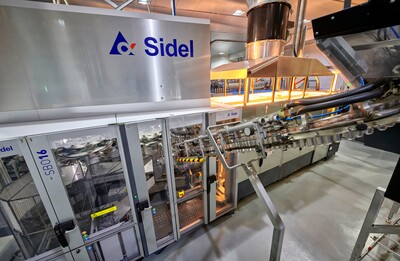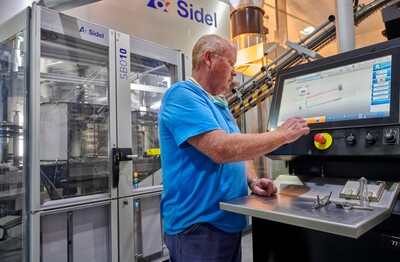Switching to in-house PET bottle production

After working for many years with local converters, Willowton Group in South Africa has increased its production volumes and updated the packaging of its sunflower oil brand to Sidel for its PET blowing and packaging design.
Heading into its fifth decade of operations, Willowton has expanded into a variety of areas within the edible oil industry. Aside from producing a range of products and owning sunflower oil brand Sunfoil, the family-owned business also has an in-house oil refinery where it produces edible oil for retail brands.
To increase its yearly production volumes and differentiate its brand from traditional edible oil brands with generic container shapes, Willowton decided to produce its PET containers in-house. To achieve this, the company acquired two Sidel EvoBLOW standalone blowers and relied on Sidel’s packaging design skills and experience to help it develop customised family bottle shapes.
One benefit of the standalone blower is a more independent bottle production set-up. The equipment also enables efficient production planning and reduces warehouse space. The SBO 16 EvoBLOW produces a two-litre format, while the SBO 10 EvoBLOW produces all bottle formats up to one litre.
As the latter manages various bottle formats, Willowton also chose to install a mould Bottle Switch system to conduct ultrarapid bottle changeovers.
“This easy way to adapt our oil production to the fast-moving market demands contributes to a great production flexibility,” commented Faisal Modi, Operations Manager at Willowton.
The system is based on repeatable, tool-free operations that mean the operator spends only 30 seconds per cavity, thereby increasing production flexibility, equipment availability and production uptime.
Both machines can operate at an efficiency level of 99.5% regardless of the end-of-line performance, due to the production buffer created by the storage silos located on the lines.
“With those two blowers, we already increased our yearly production volume by 50% and we are ready to handle any future additional demand as well,” said Modi.
To meet consumer hygiene expectations, the two Sidel blowers have been equipped with different options to ensure production integrity. These include preform dedusting, air filtration, air recovery and automatic centralised greasing.
Starting from a series of modern designs that were developed using bottle drafts and digital mock-ups, technical designs and prototypes with 3D-printed models, the new, cylindrical silhouette with a drop logo engraved on the bottle shoulders was created.
This bottle is more practical as its belt-inspired design and reduced diameter make it easier to handle. The new shape has been applied to different family bottle sizes, including 375, 500 and 750 mL and the rectangular-shaped 2 L bottle.
The company said the latter was the most challenging format because blowing a rectangular bottle without any specific preferential heating blowing process affects the structural rigidity of the container. Sidel conducted various packaging evaluation and qualification tests on the 2 L bottle, including finite element analysis (FEA) and feasibility trials to improve its strength and performance across supply chain simulations. The bottles are equipped with push-fitting or screw closures.
“Implementing this project went particularly smoothly and we are all really happy with the result,” said Modi.
Phone: 02 9899 4642
Henkelman Titaan 110 automatic belt chamber vacuum packer
The Henkelman Titaan 110 is a fully automatic single chamber vacuum packaging machine.
Domino Mx Print & Apply Labelling
Domino's Mx-Series Print & Apply Labellers are designed to improve labelling accuracy and...
Paksmart PC40 Cartoner
Paksmart PC40 Cartoner is designed to provide budget-friendly automation with rapid ROI.
















